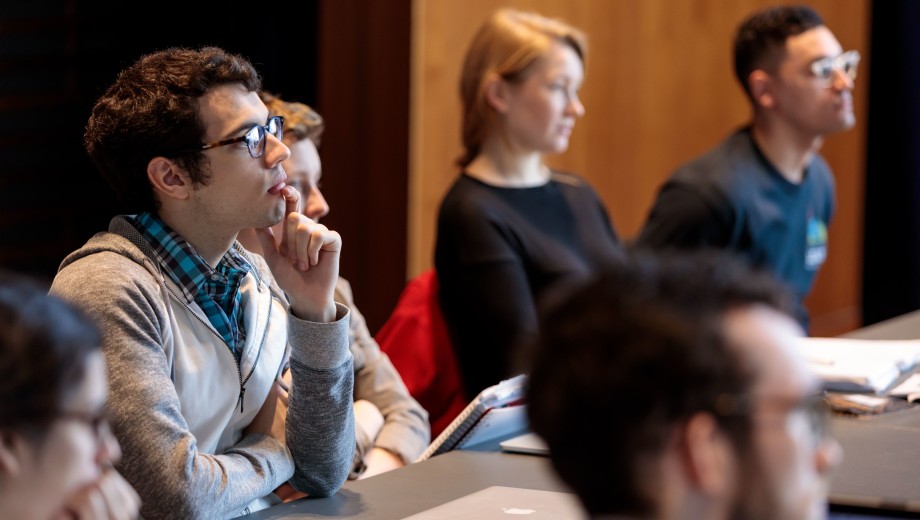At International House in April, I tapped the microphone to begin a different kind of job talk.
That is, a panel of fellow editors and I talked about our jobs to an audience of 50-some graduate students and postdocs at GRADUCon, the University’s annual career conference for its advanced degree candidates and recent alumni. More than 400 students attended GRADUCon, which included one-on-one conversations with potential employers and panels on careers in fields in and outside the academy. Ours focused on editing and publishing. As an English Language and Literature alumnus and alumni news editor for the University of Chicago Magazine, I had been asked to moderate this discussion among four other graduate alumni.
Eager to see where our conversation would go, I was just as curious to know what was on the minds of our audience. A few short years ago, I was one of them.
Joining me were Susannah Engstrom, AM’08, PhD’16, an editorial associate at the University of Chicago Press; Amanda Ehrhardt, AM’11, a manuscript editor for the Journal of the American Medical Association Network; Brooke Marine, AM’16, associate digital editor at W magazine [LINK: ; and Gregory Nosan, AM’91, PhD’01, the Art Institute of Chicago’s executive director of publishing.
Our panel was organized by Laura Turner, an ethnomusicology doctoral student and intern with UChicagoGRAD, the University office that supports grad students and postdocs. It was sponsored by PATHS (Professional Advancement and Training for Humanities Scholars), an initiative partially funded by the Mellon Foundation to help UChicago Humanities students prepare for a range of careers.
UChicagoGRAD’s advising helped me on my path from literary scholar in training to editor, and I was honored to have the opportunity to give back. When I was writing my dissertation and decided not to “go on the market” for tenure-track teaching jobs, I found myself facing a conundrum: I knew many had charted a similar path, but finding them wasn’t easy. I felt like an outsider, going it alone. Informational interviews, some facilitated by UChicagoGRAD, helped, but those conversations can be circular. It turns out a lot of humanities PhDs working outside the academy feel like outsiders. Many regard the career moves they made as unique and an unlikely model for current grad students, even though their route is increasingly common.
Happily, no one on our panel suggested their career experience was so unusual it couldn’t shed light for others. And responses from our audience suggested this was important to them. They wanted practical, concrete advice for pursuing the kinds of careers we were telling them about. They wanted to know which of the skills they’d developed in school might be valuable if they applied for publishing jobs, and where they could look for employers who would value their specialized training. They wanted to know how to find mentors and get the most out of their mentorship. They wanted to know what makes a job application stand out in a crowded pool.
They seemed gratified and enlivened by the panelists’ willingness to acknowledge that there’s no secret magic to getting a job after graduate school—that it’s not only usual but also routine, and that you don’t need to blaze a trail to get there, even if it’s outside the academy.
I left International House thinking that, for jobseekers venturing off the tenure track, alumni can be most supportive by sending the message that we’re here to help. Because that really says you’re not off track; in fact, you’re still on the right path.—Andrew Peart, AM’16, PhD’18

